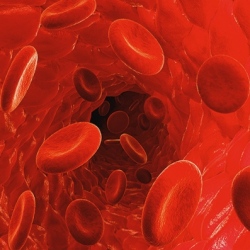
None of the people in the study had cancer at the time of treatment, however Karmazin’s team looked at the levels of certain proteins called carcinoembryonic antigens. These chemicals are found in the blood of healthy people at low concentrations, but in larger amounts these antigens can be a sign of having cancer.
The team detected that the levels of carcinoembryonic antigens fell by around 20 per cent in the blood of people who received the treatment. However, there was no control group or placebo treatment in the study, and it isn’t clear whether a 20 per cent reduction in these proteins is likely to affect someone’s chances of developing cancer.
Karmazin says the team also saw a 10 per cent fall in blood cholesterol levels. “That was a surprise,” he says. This may help explain why a study by a different company last year found that heart health improved in old mice that were given blood from human teenagers.
They also report a 20 per cent fall in the level of amyloids – a type of protein that forms sticky plaques in the brains of people with Alzheimer’s disease. One participant, a 55-year-old man with early onset Alzheimer’s, began to show improvements after one plasma treatment, and his doctors decided he could be allowed to drive a car again. An older woman with more advanced Alzheimer’s is reportedly showing slow improvements, but her results have not been as dramatic.
Instead of halting the ageing process, Karmazin says he thinks plasma transfusions actually reverse it. But if this is true, the effects don’t last forever. “Some people have felt great since they had the treatment 9 months ago,” he says. “Others have felt the effects wore off after a few months.”
Karmazin thinks that, on average, people will benefit most from receiving the treatment around twice a year. Ambrosia charges $8000 for the treatment.
Ambrosia Plasma has a website that mainly has links to various scientific research which shows benefits of transfusion of young blood.
There are many claims that Ambrosia is a scam.
Karmazin rejects the idea he is out to generate profits. He says that money is needed to cover the cost of clinical procedures, laboratory tests, and the plasma. Publicly available prices suggest that two liters of plasma could cost roughly $1,000, and a single run-down of biomarkers another $3,000 or so. He adds that because patients are paying it wouldn’t be fair to give anyone a placebo.
